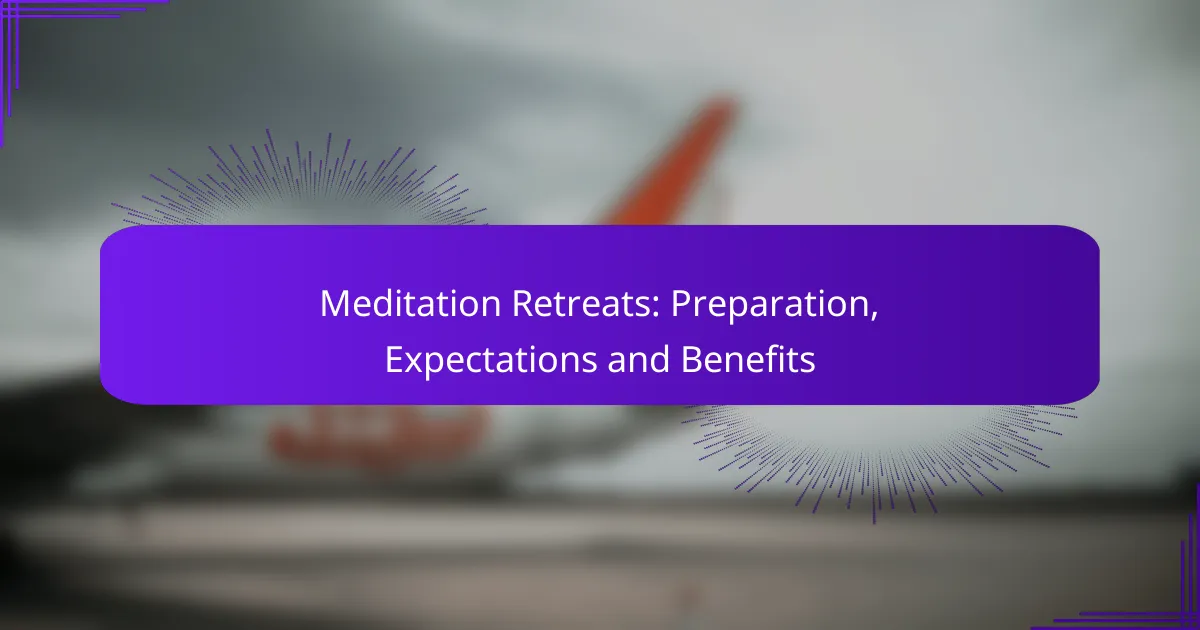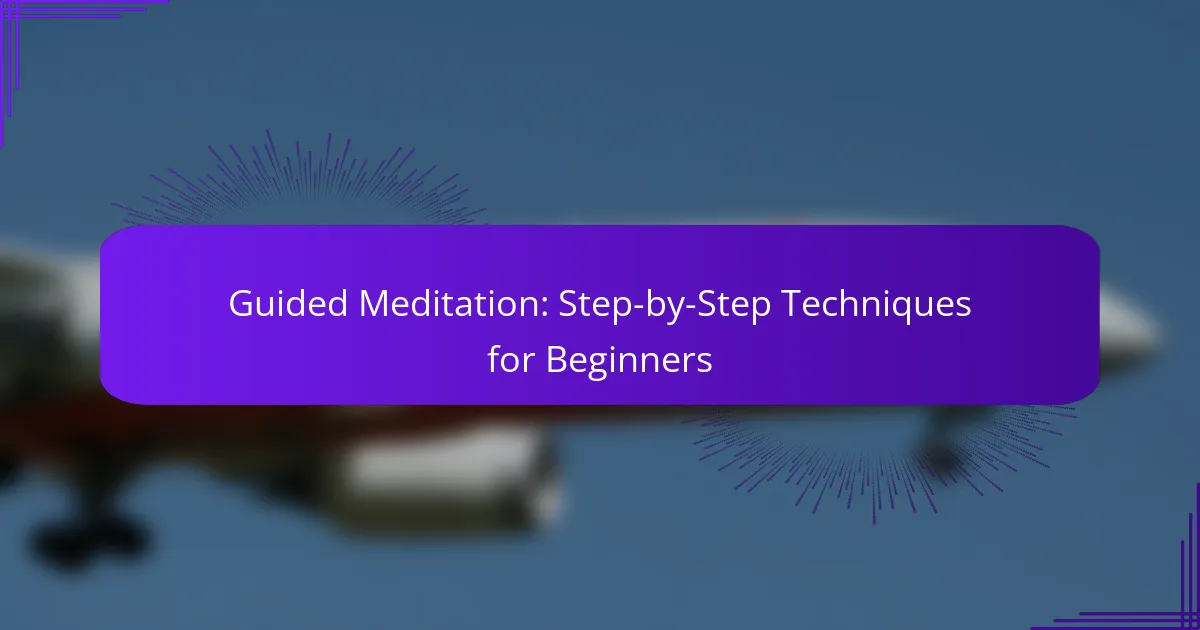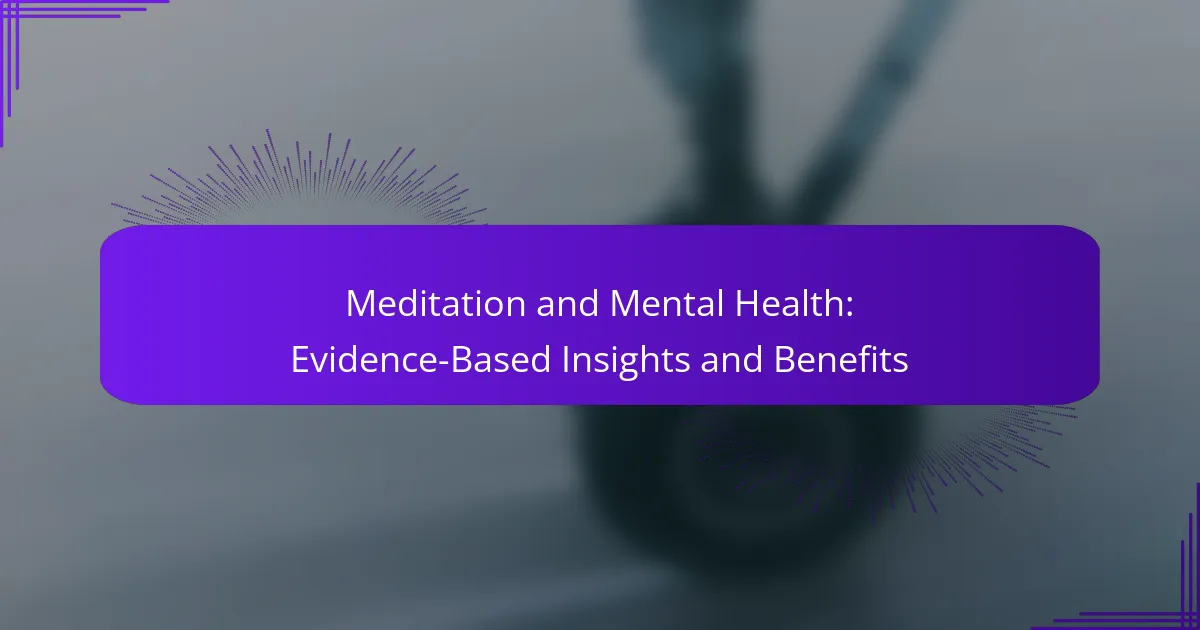Meditation retreats offer a unique opportunity for individuals to deepen their mindfulness practice and foster personal growth. Preparing for such an experience involves careful planning, from researching suitable retreat centers to setting personal intentions. Participants can expect a structured environment that promotes self-discovery through guided meditations and community engagement, ultimately leading to enhanced emotional well-being and a more profound connection to oneself and others.
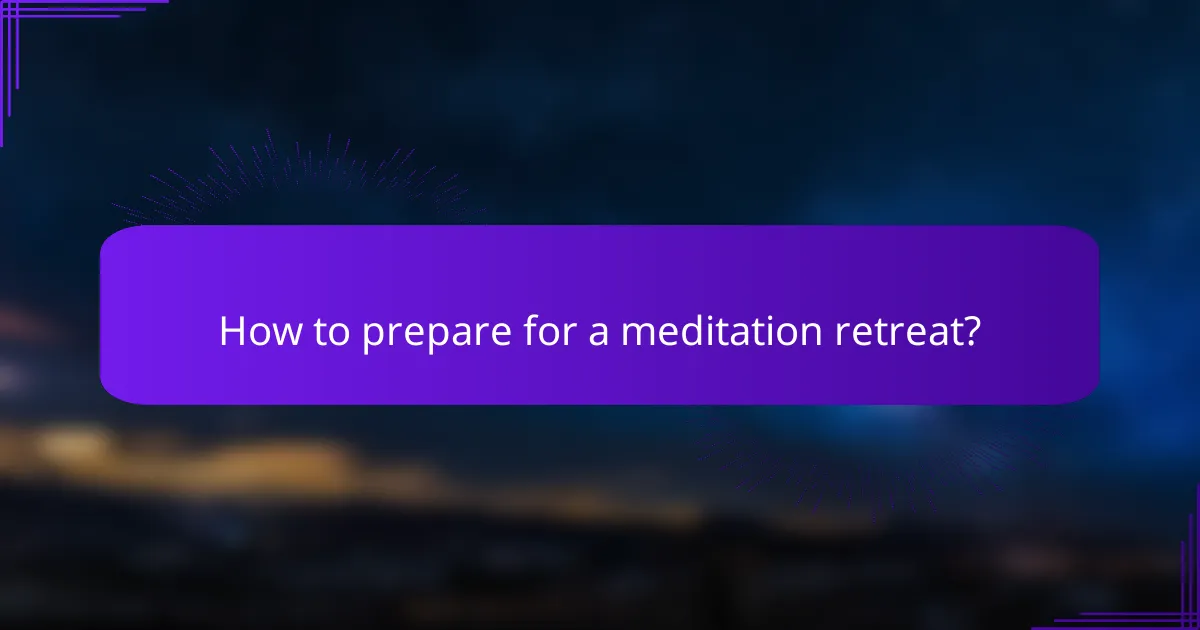
How to prepare for a meditation retreat?
Preparing for a meditation retreat involves several key steps to ensure a fulfilling experience. Focus on researching retreat centers, packing essential items, setting personal intentions, arranging travel logistics, and communicating any dietary restrictions.
Research retreat centers like Esalen Institute
Start by exploring various meditation retreat centers, such as the Esalen Institute, known for its stunning coastal views and diverse programs. Consider factors like location, duration, cost, and the types of meditation offered to find a retreat that aligns with your goals.
Read reviews and testimonials from past participants to gauge the quality of the experience. Look for retreats that provide a structured schedule, experienced instructors, and a supportive environment for meditation practice.
Pack essential items for comfort
When packing for a meditation retreat, prioritize comfort and practicality. Essential items include comfortable clothing suitable for meditation and outdoor activities, a reusable water bottle, and personal toiletries.
Consider bringing a meditation cushion or blanket if you have specific preferences. Don’t forget to pack any personal items that help you relax, such as a journal, books, or calming music.
Set personal intentions for the retreat
Establishing personal intentions can enhance your meditation retreat experience. Reflect on what you hope to achieve, whether it’s stress relief, self-discovery, or deepening your meditation practice.
Write down your intentions and keep them accessible throughout the retreat. This practice can help you stay focused and motivated during your time away from daily distractions.
Arrange travel logistics in advance
Plan your travel logistics well ahead of time to avoid last-minute stress. Book transportation to the retreat center, whether it’s by car, bus, or plane, and confirm your arrival and departure times.
Check for any specific arrival instructions from the retreat center, such as check-in times or transportation options from nearby airports. Having a clear travel plan will help you arrive relaxed and ready to engage in the retreat.
Communicate dietary restrictions
Inform the retreat center of any dietary restrictions or preferences well in advance. Many centers offer meal plans that accommodate various diets, including vegetarian, vegan, gluten-free, or allergy-specific options.
Clear communication ensures that your nutritional needs are met, allowing you to focus fully on your meditation practice without concerns about food. Confirm these arrangements a few days before your arrival to ensure everything is in place.

What can I expect at a meditation retreat?
At a meditation retreat, participants can expect a structured environment focused on mindfulness and self-discovery. These retreats typically include guided meditation sessions, personal reflection time, and opportunities for community engagement.
Daily schedule of meditation sessions
The daily schedule at a meditation retreat usually consists of multiple meditation sessions spread throughout the day. Participants might engage in morning and evening meditations, with sessions lasting anywhere from 30 minutes to over an hour.
It’s common for retreats to incorporate different styles of meditation, such as mindfulness, loving-kindness, or body scan techniques. This variety helps attendees explore what resonates most with them.
Group activities and workshops
Group activities and workshops are integral to the retreat experience, fostering a sense of community and shared learning. These may include discussions on meditation techniques, yoga classes, or creative expression workshops.
Participants are encouraged to share their experiences and insights, which can enhance personal growth and deepen connections with others. Engaging in these activities can also provide practical tools to incorporate meditation into daily life.
Silence periods and personal reflection time
Silence periods are a hallmark of meditation retreats, allowing participants to disconnect from external distractions and turn inward. These periods can range from a few hours to entire days, depending on the retreat’s structure.
During personal reflection time, attendees are encouraged to journal or simply sit in contemplation, which can lead to profound insights and clarity. It’s essential to embrace this quiet time as an opportunity for self-discovery.
Community meals and shared spaces
Community meals are often a highlight at meditation retreats, providing nourishing food and a chance to connect with fellow participants. Meals are typically vegetarian or vegan, emphasizing health and mindfulness in eating.
Shared spaces, such as meditation halls and lounges, facilitate interaction and support among attendees. These environments foster a sense of belonging and encourage open discussions about experiences and practices.
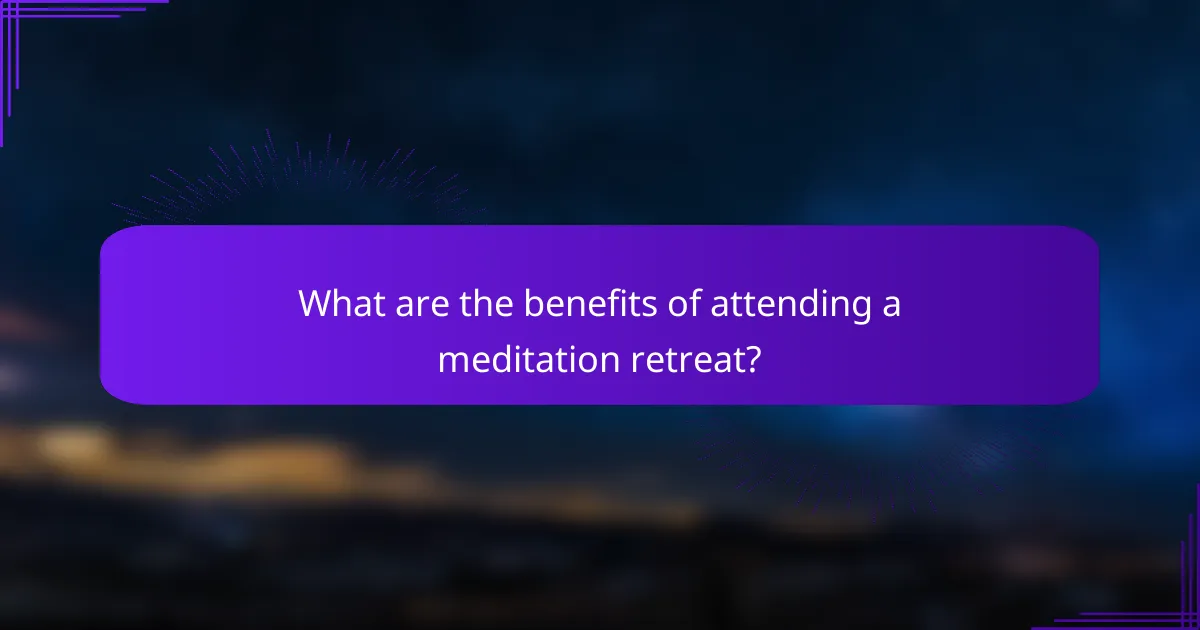
What are the benefits of attending a meditation retreat?
Attending a meditation retreat offers numerous benefits, including enhanced mindfulness, improved emotional well-being, and a deeper meditation practice. These retreats provide an immersive environment that fosters personal growth and connection with others on a similar journey.
Enhanced mindfulness and stress reduction
Meditation retreats are designed to cultivate mindfulness, which can significantly reduce stress levels. By engaging in daily meditation practices, participants learn to focus their attention and become more aware of their thoughts and feelings.
This heightened awareness allows individuals to manage stress more effectively, leading to a calmer and more centered state of being. Many attendees report feeling a profound sense of peace that lasts long after the retreat ends.
Improved emotional well-being
Emotional well-being often flourishes in the supportive environment of a meditation retreat. Participants can explore their emotions without distractions, leading to greater self-acceptance and resilience.
Through guided sessions and group discussions, individuals can process their feelings and gain insights into their emotional patterns. This can result in reduced anxiety and improved mood, contributing to overall mental health.
Deepened meditation practice
A meditation retreat provides the opportunity to deepen one’s meditation practice through structured guidance and extended periods of silence. Participants can experiment with various techniques, such as mindfulness, loving-kindness, or transcendental meditation.
With dedicated time to practice, individuals often find that their ability to concentrate and experience stillness improves significantly. This can lead to a more fulfilling and effective meditation routine once they return home.
Connection with like-minded individuals
One of the unique aspects of meditation retreats is the chance to connect with like-minded individuals. Sharing experiences and insights with others can foster a sense of community and support.
These connections often lead to lasting friendships and networks that encourage continued practice and personal growth. Engaging with others who share similar goals can enhance motivation and accountability in one’s meditation journey.
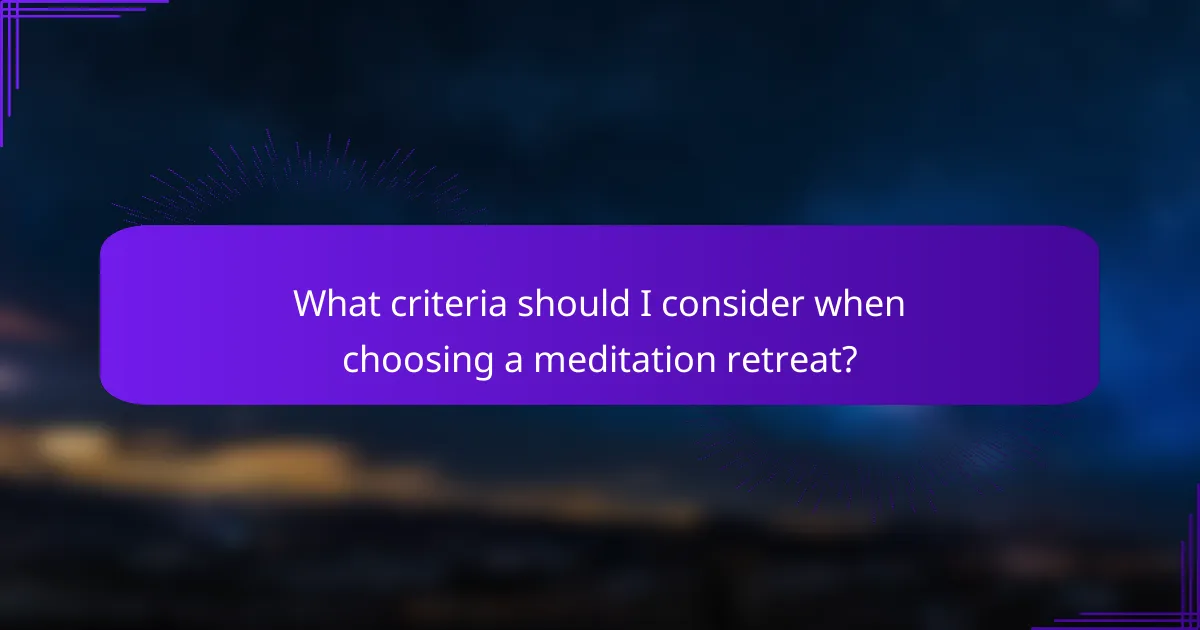
What criteria should I consider when choosing a meditation retreat?
When selecting a meditation retreat, consider factors such as location, program length, instructor qualifications, and costs. These elements will significantly influence your experience and the benefits you can derive from the retreat.
Location and environment of the retreat
The location of a meditation retreat can greatly affect your overall experience. Look for serene environments, such as mountains, forests, or near bodies of water, which can enhance your ability to relax and focus. Consider whether you prefer a remote setting or one closer to urban amenities.
Additionally, check the climate and accessibility of the location. Some retreats may be in regions with specific weather patterns, which can impact your comfort and travel plans.
Length and structure of the program
Retreats can vary in length, typically ranging from a weekend to several weeks. Consider how much time you can commit and what you hope to achieve during your stay. Shorter retreats may provide a quick reset, while longer ones often allow for deeper exploration and practice.
Examine the structure of the program as well. Some retreats offer a mix of guided sessions, silent meditation, and group discussions, while others may focus more on individual practice. Choose a format that aligns with your personal preferences and goals.
Instructor qualifications and experience
The qualifications and experience of the instructors can significantly impact the quality of your retreat. Look for instructors with recognized training in meditation practices and teaching experience. Their background can provide insights into their approach and the techniques they will share.
Consider reading reviews or testimonials from past participants to gauge the effectiveness of the instructors. A good instructor can create a supportive environment and help you navigate challenges during your practice.
Cost and accommodation options
Costs for meditation retreats can vary widely, often ranging from a few hundred to several thousand dollars, depending on the location and amenities offered. Be clear about your budget and what you are willing to spend.
Review accommodation options as well. Some retreats may offer shared rooms, while others provide private accommodations. Ensure that the living arrangements align with your comfort level and expectations for privacy during your retreat experience.
